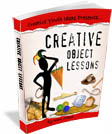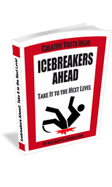So here’s what I want you to do, God helping you: Take your everyday, ordinary life -your sleeping, eating, going-to-work, and walking-around life – and place it before God as an offering. Embracing what God wants you to do it the best thing you can do for Him. Romans 12v1 (The Message)
Last Sunday, Pastor exalted us to rise up like Aaron and Hur who stepped up to serve (Exodus 17v12-13). I’ve been thinking about that a lot this week because this Saturday, I’m up to play the synth again. It’ll be my first time that I’ll be serving as a musician since I stepped down from the music ministry in January this year.
After service on Sunday, it brought to my memory Romans 12. I’ve been reading the NIV version so often that when I decided to check out another version – The Message, it impacted me so greatly that I had to do something about it. Now you know why I write.
Paul the great apostle in Romans puts a challenge to us to worship God beyond singing praises. He challenges us worship God through our life.
A Pre-Decision
In the second verse of Romans 12, Paul writes fix your attention on God. He didn’t write this because he thought it was good advise but it is a reminder from his last experience in Philippi.
In Acts 16, Paul and Silas were thrown in jail and severely beaten because they delivered a slave girl from her ability to tell the future. Her owner was so mad that he had them arrested and thrown into jail. The Bible records that Paul and Silas were singing a robust hymn to God. I’m just wowed because I don’t know if I could still sing robustly if I had been severely beaten and thrown into a cell that was probably dark, cold and smelly.
Have you wondered how these two men could do that?
Observation – Don’t wait for the direst circumstance to arrive in your life before you make a decision to worship God.
We have this saying “God is good, all the time.” I don’t think we can say that if we don’t make a commitment to worship God.
A Pre-Requisite
In Romans 12v1, it reads “Therefore, I urge you, brethren, by the mercies of God, to present your bodies a living and holy sacrifice, acceptable to God, which is your spiritual service of worship.” (NASB)
He’s made it so easy for us to worship Him because He included a pre-requisite. We can worship God and live our lives in HIS call because He’s pardoned us when He sent Christ to die for our sins on the cross.
So what does service got to do with worship? It has everything to do with worship. Even those who worship idols offer a sacrifice. Be it in paper money, food or by piercing themselves. The difference with us is that our sacrifice is no longer in animals but it is with our lives – the physical expression of what we are capable to do.
Often times, we don’t live up to God’s call for us because we spend too much time living it down. We forget that our faith is not based on key performance indexes (KPIs). We tend to live our Christian faith, most of the time, like we’re running on a performance treadmill. God doesn’t care about KPIs.
I could go on but I’m ending this week’s thought with a quote from a pastor because it says it all – “Don’t let what’s WRONG about you (or your circumstance) stop you from worshipping what’s RIGHT about God.”
And that is the reason why, my friends, we can enter God’s presence blameless anytime and every time declaring that “God is Good, All the TIME.”
 MORE IDEAS? See “Creative Object Lessons”
MORE IDEAS? See “Creative Object Lessons”
200 page e-book that explains everything you need to know when planning your very own object lessons. It contains 90 fully developed object lesson ideas and another 200 object lesson starter ideas based on Biblical idioms and Names / Descriptions of God.




